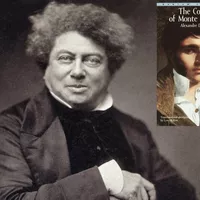Chapter 11. The Corsican Ogre (4)
"But you have seen him?" "Sire, I went straight to the Duc de Blacas." "But you will see him, then?" "I think not, sire." "Ah, I forgot," said Louis, smiling in a manner which proved that all these questions were not made without a motive; "I forgot you and M. Noirtier are not on the best terms possible, and that is another sacrifice made to the royal cause, and for which you should be recompensed." "Sire, the kindness your majesty deigns to evince towards me is a recompense which so far surpasses my utmost ambition that I have nothing more to ask for." "Never mind, sir, we will not forget you; make your mind easy. In the meanwhile" (the king here detached the cross of the Legion of Honor which he usually wore over his blue coat, near the cross of St. Louis, above the order of Notre-Dame-du-Mont-Carmel and St. Lazare, and gave it to Villefort)--"in the meanwhile take this cross." "Sire," said Villefort, "your majesty mistakes; this is an officer's cross." "Ma foi," said Louis XVIII., "take it, such as it is, for I have not the time to procure you another. Blacas, let it be your care to see that the brevet is made out and sent to M. de Villefort." Villefort's eyes were filled with tears of joy and pride; he took the cross and kissed it. "And now," he said, "may I inquire what are the orders with which your majesty deigns to honor me?" "Take what rest you require, and remember that if you are not able to serve me here in Paris, you may be of the greatest service to me at Marseilles." "Sire," replied Villefort, bowing, "in an hour I shall have quitted Paris." "Go, sir," said the king; "and should I forget you (kings' memories are short), do not be afraid to bring yourself to my recollection. Baron, send for the minister of war. Blacas, remain." "Ah, sir," said the minister of police to Villefort, as they left the Tuileries, "you entered by luck's door--your fortune is made." "Will it be long first?" muttered Villefort, saluting the minister, whose career was ended, and looking about him for a hackney-coach. One passed at the moment, which he hailed; he gave his address to the driver, and springing in, threw himself on the seat, and gave loose to dreams of ambition.
Ten minutes afterwards Villefort reached his hotel, ordered horses to be ready in two hours, and asked to have his breakfast brought to him. He was about to begin his repast when the sound of the bell rang sharp and loud. The valet opened the door, and Villefort heard some one speak his name.
"Who could know that I was here already?" said the young man. The valet entered.
"Well," said Villefort, "what is it?--Who rang?--Who asked for me?" "A stranger who will not send in his name." "A stranger who will not send in his name! What can he want with me?" "He wishes to speak to you." "To me?" "Yes." "Did he mention my name?" "Yes." "What sort of person is he?" "Why, sir, a man of about fifty." "Short or tall?" "About your own height, sir." "Dark or fair?" "Dark,--very dark; with black eyes, black hair, black eyebrows." "And how dressed?" asked Villefort quickly.
"In a blue frock-coat, buttoned up close, decorated with the Legion of Honor." "It is he!" said Villefort, turning pale.
"Eh, pardieu," said the individual whose description we have twice given, entering the door, "what a great deal of ceremony! Is it the custom in Marseilles for sons to keep their fathers waiting in their anterooms?" "Father!" cried Villefort, "then I was not deceived; I felt sure it must be you." "Well, then, if you felt so sure," replied the new-comer, putting his cane in a corner and his hat on a chair, "allow me to say, my dear Gerard, that it was not very filial of you to keep me waiting at the door." "Leave us, Germain," said Villefort. The servant quitted the apartment with evident signs of astonishment.

